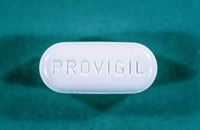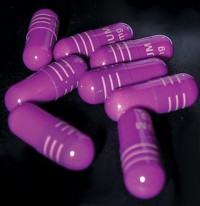Advertisement
Grab your lab coat. Let's get started
Welcome!
Welcome!
Create an account below to get 6 C&EN articles per month, receive newsletters and more - all free.
It seems this is your first time logging in online. Please enter the following information to continue.
As an ACS member you automatically get access to this site. All we need is few more details to create your reading experience.
Not you? Sign in with a different account.
Not you? Sign in with a different account.
ERROR 1
ERROR 1
ERROR 2
ERROR 2
ERROR 2
ERROR 2
ERROR 2
Password and Confirm password must match.
If you have an ACS member number, please enter it here so we can link this account to your membership. (optional)
ERROR 2
ACS values your privacy. By submitting your information, you are gaining access to C&EN and subscribing to our weekly newsletter. We use the information you provide to make your reading experience better, and we will never sell your data to third party members.
Energy
Pharma Deals Divide High Court
Patent Suits: Court weighs legality of settlements that may delay market entry of generic medicines
by Glenn Hess
March 28, 2013
| A version of this story appeared in
Volume 91, Issue 13

The Supreme Court appeared unsure last week about whether brand-name pharmaceutical companies can pay potential generic competitors to keep their cheaper products off the market for a certain number of years. The issue is at the heart of a case before the high court involving AndroGel, a treatment for low testosterone in men, and an agreement between its original developer and a company that wanted to market a generic copy.
The drug industry says “pay for delay” deals do not delay generic drugs, but the federal government disagrees. Lawyers representing the Obama Administration argued before the Court that the deals violate federal antitrust law and result in higher drug prices that cost consumers billions of dollars each year. “It’s an agreement not to compete,” Deputy Solicitor General Malcolm L. Stewart told the justices. “Agreements of this sort should be treated as presumptively unlawful.”
But several justices called that approach unnecessarily rigid. Justice Stephen G. Breyer suggested that perhaps the matter should be left to federal district court judges who can evaluate cases on an individual basis.
In 2003, AndroGel’s developer, Solvay Pharmaceuticals, which is now part of AbbVie, filed a patent infringement suit to block Watson Pharmaceuticals from making a generic copy. The companies reached a deal in 2006 that avoided a patent fight but allowed Watson to launch its less expensive version of the drug in 2015, five years before Solvay’s patent on AndroGel expires. Solvay also agreed to pay Watson, now known as Actavis, up to $30 million annually, according to the Federal Trade Commission (FTC).
In 2009, FTC sued the firms for conspiring to keep lower-cost generic testosterone replacement therapy off the market to the detriment of consumers. Last year, the U.S. Court of Appeals for the 11th Circuit, in Atlanta, ruled that the drugmakers’ agreement didn’t violate antitrust law, causing FTC to appeal to the Supreme Court.
While hearing arguments in the case on March 25, Justice Antonin Scalia indicated that he agreed with the appeals court that settlements between brand-name drug companies and their generic drug rivals pass antitrust muster, as long as they do not prevent the generic drug from entering the market at a date beyond the patent expiration of the brand-name company’s product.
The Generic Pharmaceutical Association says every patent settlement to date has brought a generic drug to market months or years before the relevant patent expired. Two-thirds of the new generic medicines launched in 2010 and 2011 reached the market early because of a settlement, according to the industry trade group.
Several justices expressed concern, however, that the deals may allow drug companies to protect their interests at the expense of consumers. “It’s clear what is going on here is that they’re splitting monopoly profits, and the person who’s going to be injured are all the consumers out there,” Justice Elena Kagan said.
The Supreme Court is expected to issue a decision by the end of June.





Join the conversation
Contact the reporter
Submit a Letter to the Editor for publication
Engage with us on Twitter